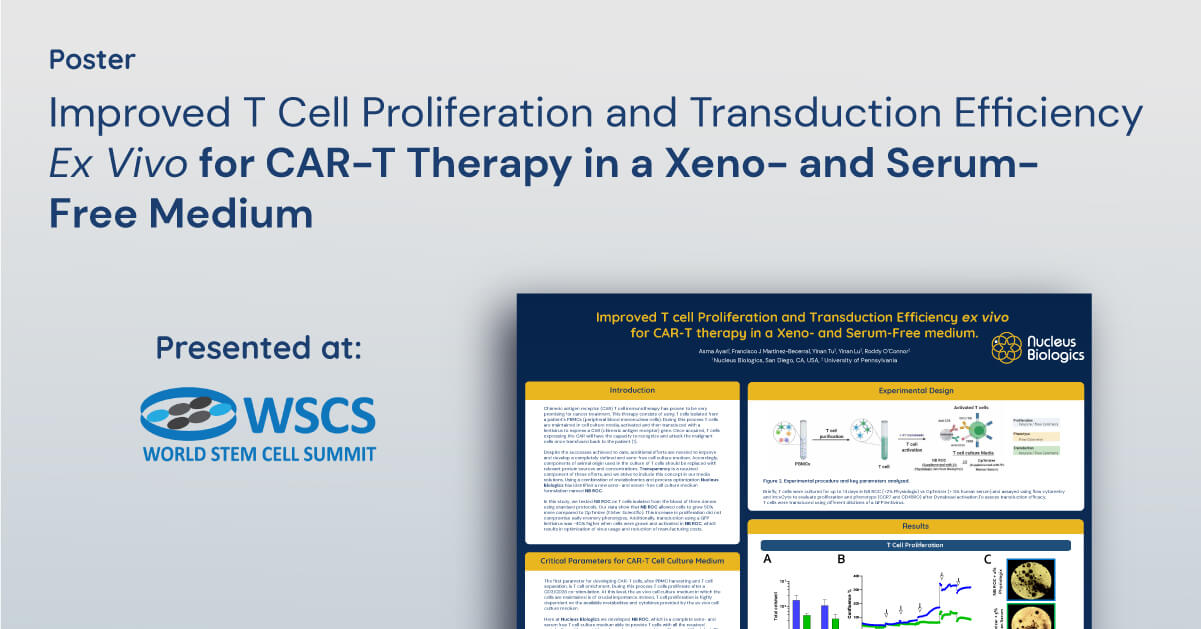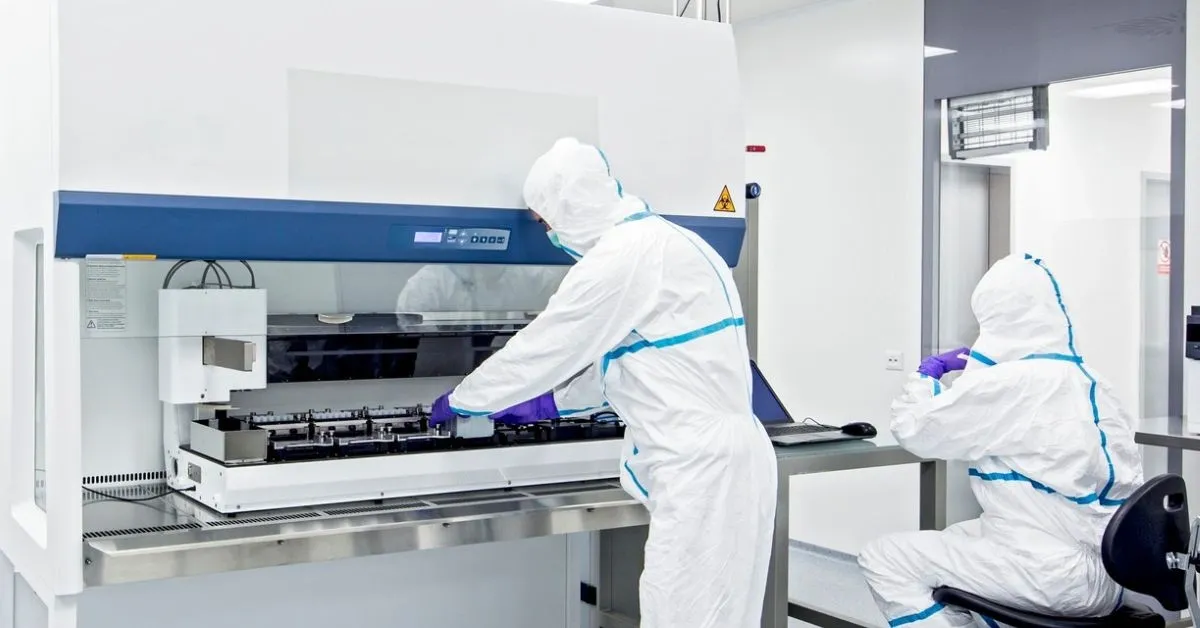Chimeric antigen receptor (CAR) T cell immunotherapy has proven to be very promising for cancer treatment. This therapy consists of using T cells isolated from a patient’s PBMCs. During this process T cells are maintained in cell culture media, activated, and then transduced with a lentivirus to express a CAR gene. Once acquired, T cells expressing the CAR will have the capacity to recognize and attack the malignant cells once transfused back to the patient (1).
Despite the successes achieved to date, additional efforts are needed to improve and develop a completely defined and xeno-free cell culture medium. Accordingly, components of animal origin used in the culture of T cells should be replaced with relevant protein sources and concentrations. Transparency is a required component of these efforts, and we strive to include this concept in our media solutions. Using a combination of metabolomics and process optimization Nucleus Biologics has identified a new xeno- and serum-free cell culture medium formulation named NB ROC.
In this study, we tested NB ROC on T cells isolated from the blood of three donors using standard protocols. Our data show that NB ROC allowed cells to grow 50% more compared to OpTmizer (Fisher Scientific). This increase in proliferation did not compromise early memory phenotypes. Additionally, transduction using a GFP lentivirus was ~40% higher when cells were grown and activated in NB ROC, which results in optimization of virus usage and reduction of manufacturing costs.




